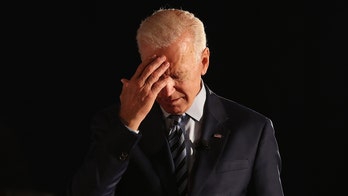The “in” thing to do in Washington these days is to deplore how political everything has become and express, with deep longing, the desire to heal the nation’s ideological divisions and unite for a greater good.
But I’ve never been particularly good at being part of the in crowd, so let’s go ahead and get political about the biggest secular holiday in American culture: the Super Bowl.
Plus, those calls for bipartisan accord follow big election defeats as predictably as mushrooms follow a spring rain in a cow pasture. Democrats want to meet in the middle now, but weren’t so sympathetic to Republican pleas for centrist civility following big wins for the blue team in 2006 and 2008.
So as you get ready to watch the Pittsburgh Steelers take on the Green Bay Packers for the championship, here’s the political scorecard on the two teams.
Ownership: Steelers (D), Packers (N/A)
When he was pursuing votes in Pennsylvania back in 2008, Barack Obama got a big boost from Steelers owner Dan Rooney. The Rooneys have been more supportive of Democrats than Republicans, and Mr. Steelers’ very public endorsement before the Pennsylvania Democratic primary no doubt helped Obama narrow the gap with Hillary Clinton in the more conservative, blue-collar precincts of Western Pennsylvania.
Obama repaid Rooney for his support soon after taking office by naming Rooney to the plum post of U.S. ambassador to Ireland. His son, Art Rooney II, the current leader of the Steelers’ franchise, has given more to Democrats, though he has also given generously to Pennsylvania incumbent Republicans. In addition, he’s boosted his cousin, Tom Rooney, a Republican Congressman from Florida. But on the whole, the Steelers’ front office leans toward the Democrats.
The Packers, meanwhile, are a publicly held corporation with more than 112,000 stockholders and strict limits to prevent anyone from gobbling up a controlling share. Packers CEO Mark Murphy has been assiduously non-partisan in his politics. The former Redskins safety and Northwestern University Athletic Director gave $5,000 in the past two election cycles to the NFL’s political action committee, which has leaned Democratic but mostly because it favors incumbents.
No players on either team gave any political contributions in 2010 according to the Center for Responsive Politics.
Fan Base: Steelers (R), Packers (R)
Comparing the two teams’ fans is difficult. While Steeler Nation stretches from eastern Ohio to central Pennsylvania and far south into West Virginia, Green Bay is a small city squeezed in between an army of Bears fans to the south and Vikings fans to the west. While many around the nation root for the team with the storied history from the smallest city to support a franchise, the real fan base is the state of Wisconsin.
Steelers fans and Packers fans share a lot in common politically. Both groups are from traditionally Democratic, labor-dominated regions. And both have recently turned increasingly Republican as the Democratic Party moved to the left on social and environmental issues.
While Wisconsin swooned for Barack Obama in 2008, the entire Ohio Valley region and Western Pennsylvania, with the exception of the city of Pittsburgh itself, went for John McCain.
In 2010, the results were more unified. Both Pennsylvania and Wisconsin replaced Democratic governors and Senators with Republican ones. Republicans gained two House seats in Wisconsin, including in the district the covers Green Bay and three House seats in the Ohio Valley.
The real definition for both fan bases would really be Blue Dog Democrat, but it’s hard to think that either the Steeler or Packer faithful would elect many Democrats if elections were held today.
Team Name Inspiration: Steelers (D), Packers (D)
Like the regions they represent, the nicknames for the Super Bowl combatants have gone through something of a transition.
It would have been hard to find a Republican steelworker or meatpacker 40 years ago, but the industries have gone through major changes in recent years. As Democrats have pushed tougher environmental standards on industry and even livestock, old political divisions between labor and management have decreased in the face of common concerns.
One could hardly classify the steel or meat industries as favorites of Democrats. American steel production has been devastated by new regulations, high labor costs and cheap foreign imports. And meat has increasingly been targeted by global warming activists for encouraging dangerous levels of cow and pig flatulence.
But the teams’ mascots aren’t the industries, but the men and women who work in them. And I’d guess that the nation’s remaining steelworkers are still mostly Democrats and the meatpacking industry, increasingly staffed by migrant workers, also probably leans toward Democrats.
The final score: Steelers (D), Packers (I)
The Steelers are two-thirds Democrat and one-third Republican while the Packers are half and half on the two points where they could compete.
Chris Stirewalt is FOX News’ digital politics editor. His political note, Power Play, is available every weekday morning at FOXNEWS.COM.




